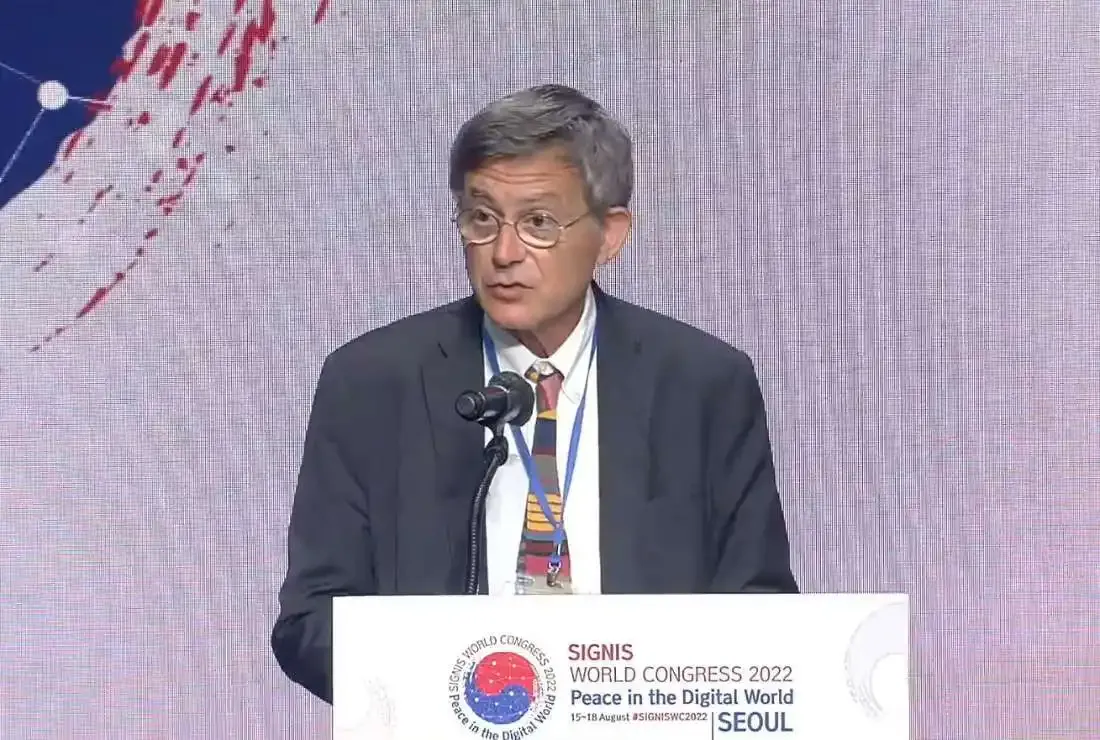He appealed to all Catholic journalists and all men and women of goodwill who are “engaged in the difficult and great field of communication, to be protagonists of a new humanism, embodied in active and participatory communities.”
“We can weave a new idea of citizenship,” Dr. Ruffini said in his August 16 address to members of SIGNIS, the World Catholic Association for Communication.
He said, “It is up to us to promote the stable and permanent involvement of young people from all over the world in our communication, linking them according to their projects.”
“It is up to us to try to weave a multimedia universe to be proud of: for its freedom; for its openness; for its ability to create a boundless community of belonging and sharing; for its ability to generate action, and to consider communication as a system of relationships,” Dr. Ruffini said.
He added, “It is up to us to take away from the web that opaque tendency that apparently unites but instead divides. It is up to us to witness a different way of living and to design a new way of communicating: new yet ancient, based on gift rather than consumption; on gratuitousness rather than price; on sharing rather than exclusion.”
He continued, “SIGNIS can help the whole Church to weave a network that is not satisfied with connection but translates the Gospel message into the world of multimedia without erasing the histories and cultures of each country.”
“By offering our network as a place of true encounters among people, we can bear witness to a different way of living our time; a way that is founded on the gift rather than on consumption; on giving for free rather than on price; on sharing rather than on hegemonic ambition; on union as a remedy to the ambition to divide ourselves from others and then impose ourselves on them by standardizing them,” Dr. Ruffini went on to say.
Reflecting on the theme of the August 15-19 congress, “Peace in the Digital World,” the Vatican official said, “There are certain things technology can never replace, including freedom, encounter, the surprise of the unexpected, conversion, the outburst of ingenuity, gratuitous love.”
“Too often, we define ourselves starting with what divides us rather than what unites us, giving rise to suspicion and to the venting of every kind of prejudice,” the head of the Vatican Dicastery for Communication said.
He added, “What ought to be a window on the world becomes a showcase for exhibiting personal narcissism.”








